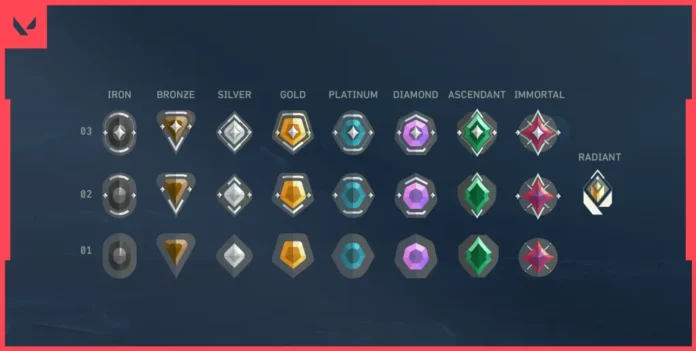Valorant is a highly competitive video game, with players from throughout the world constantly trying to climb up the ranking spectrum of the shooter. Featuring intense matches and strategic gameplay, Valorant has quickly become a favorite in the esports scene, attracting both casual gamers and professional players alike.
In essence, ranks in Valorant are a representation of your overall skill level. Your performance in the Competitive game mode determines your placement within one of the game’s nine skill groups including Iron, Bronze, Silver, Gold, Platinum, Diamond, Ascendant, Immortal, and Radiant. Except for Radiant, each skill group is further subdivided into three divisions.
However, the ranking system of Valorant might not be as simple as you think. The rank you see on your screen might not be an accurate representation of your actual skill group at all. This is why understanding your MMR (Matchmaking Rating) in Valorant is crucial.
What is MMR in Valorant?
In layman’s terms, your Valorant MMR is a hidden number that accurately reflects your performance in the competitive landscape of the game. This rating is never revealed to players, who can only see their visible skill group.
This MMR fluctuates based on how you play your Competitive games. Outperforming other players in your skill group will increase your MMR, while poor performance will cause it to decline.
If you take a break from playing Valorant, you may also experience MMR decay. This means your MMR will gradually decrease over time when you’re inactive.

How To Check Your MMR in Valorant?
While there’s no way for players to accurately determine their MMR in Valorant, you can get a rough estimate of your MMR by taking a close look at your RR gains and losses after your competitive games.
Typically, if your MMR is higher than your current rank, you’ll notice yourself getting more Rank Rating (RR) from winning games and losing less RR on losses.
There are a number of other factors that affect your RR as well, like your individual performance, round difference, and more. But keeping an eye out for your RR gains and losses can easily help you identify your actual MMR in Valorant.


